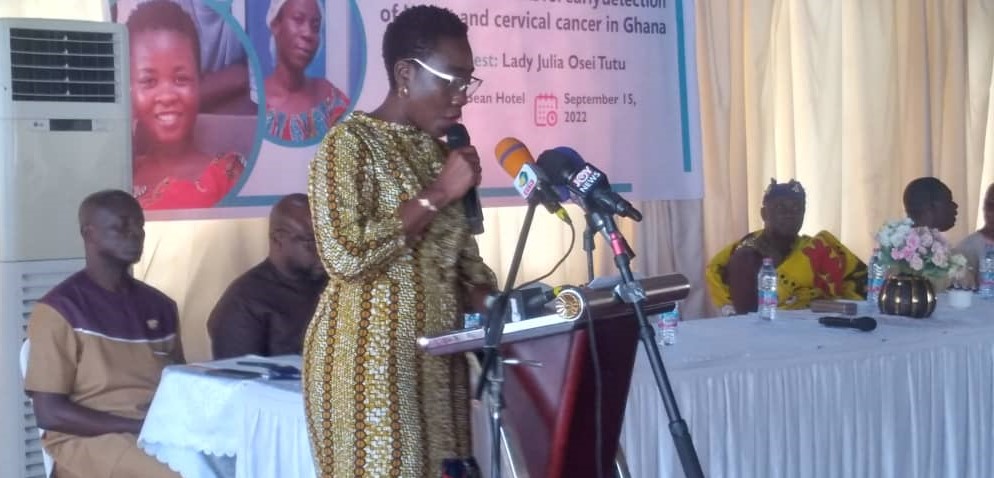By Yussif Ibrahim
Kumasi, Sept. 16, GNA – A project seeking to fight cervical and breast cancers in the Ashanti Region has been launched in Kumasi with a call on stakeholders to join the fight against the deadly diseases.
Dubbed; “Women’s Health Initiative”, the project seeks to design, develop and demonstrate a scalable service delivery model that improves access to early detection and treatment of those cancers.
The initiative hinges on awareness creation and early detection for women’s cancers and it is a collaboration between Oneroche of Roche Ghana, a leading healthcare company, the Ghana Health Service, and JHPIEGO, an international non-profit organisation committed to the promotion of women’s health.
The model would be demonstrated in the Bekwai Municipality on pilot basis and expected to be expanded upon a functioning care pathway.
Dr Emmanuel Tinkorang, the Regional Director of Health Services, at a media launch of the project, said the importance of women’s health to socio-economic development could not be over-emphasised.
The pain, suffering, stigma, and premature mortality associated with breast and cervical cancers were major public health challenges in Ghana, he said.
Hence the importance of Oneroche and JHPIEGO to support the Ghana Health Service to fight such diseases, he said, which required the support of all stakeholders.
“It is my hope that the initiative and all other cancer intervention programmes in the region will work together to promote the health and wellbeing of women and reduce the burden of breast and cervical cancers,” Dr Tinkorang said.
Dr Pearl Nanka-Bruce, the Country Director, JHPIEGO, said breast and cervical cancers remained top cancer killers globally.
“It is estimated that more than 266,000 women die of cervical cancer each year out of the 750,000 who contract the disease and 87 per cent of these deaths are happening in less developed parts of the world,” she stated.

In Ghana, breast cancer had the highest incidents of all cancers whilst cervical was the highest cancer mortality cause amongst women, Dr Nanka-Bruce said.
More than 4,000 women were diagnosed with breast cancer annually with about 1,800 not surviving the disease in the country.
More than 1,500 women out of about 3,000 who contracted cervical cancer every year in Ghana also died, she said.
Dr Nanka-Bruce said access to specialised care and screening, especially for the poor, were some of the contributory factors to the high mortality rate.
“Women in Ghana face multiple challenges in accessing quality breast and cervical healthcare, which results in late detection and delayed diagnosis and treatment, contributing to the high mortality rate…we see in the country.”
Dr Philip Anderson, the General Manager of Roche Product Ghana Limited, said the initiative would carry the community members along to ensure continuity.
He said the COVID-19 pandemic showed the importance of early and adequate diagnosis and testing to achieve the desired healthcare outcomes.
“It is for this reason that we want to bring to the fore early detection and testing for cervical cancer and demonstrate that this makes a very positive impact in the outcomes of the cases that we see.”
GNA